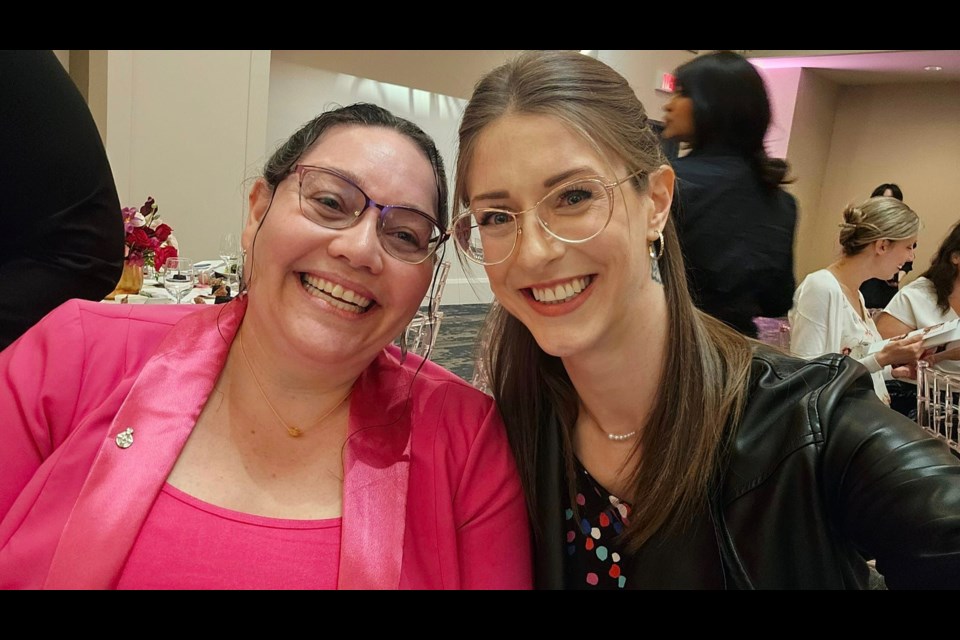Two influential women leading the way for awareness of the lasting impacts of residential schools had an emotional meeting recently.
Quilts for Survivors founder Vanessa Génier was honoured by Women of Influence+ in Toronto as one of the Top 25 Women of Influence 2024. While at the event, Génier met Phyllis Webstad, who founded the Orange Shirt Society and started Orange Shirt Day, which honours Indigenous children who were forced into residential schools.
Meeting each Webstad came together through social media posts and felt like it was meant to be, said Génier.
“We were only with her for about 20 minutes, but it just meant a lot,” she said. “It was very emotional to meet her, and just to chat with her, and just the odds that we were both there at the same time!”
Both women follow each other on social media, and Génier said Webstad has been very supportive of Quilts for Survivors' work.
“Knowing that someone who started something similar but different to what we’re doing and then supported us through this is huge,” she said. "Knowing that survivors support what we’re doing means a lot.”
Génier and Webstad will receive a governor general’s award on May 8.
Génier was nominated for the Women of Influence award by the Timmins Chamber of Commerce and attended the event with two Quilts for Survivors board members and representatives from the city, including Mayor Michelle Boileau.
The Top 25 Women of Influence recognizes extraordinary work done by women and gender-diverse individuals.
“Any of this is great publicity for the organization,” Génier said. “Everyone had great things to say. The atmosphere made you feel very special and very important. Everyone was very proud.”
While she appreciates being recognized by the Women of Inluence+ in Toronto, she said Quilts for Survivors is a group effort.
“I’m not looking for recognition, but when the organization is recognized through me or through itself, it’s nice to share it with the people who help make it possible,” she said.
She said that recognition helps keep Indigenous people and issues in people’s minds.
“We’re continuing to bring a reminder that Indigenous people are still here despite everything that we’ve gone through,” she said. “Survivors are still around, and the residential schools only closed in ‘96.”
The growth and recognition of Quilts for Survivors is beyond what Génier imagined it would be when she started the project in 2021 after unmarked graves were discovered at a Kamloops residential school site.
Her original goal was to make 18 quilts, and the organization plans to celebrate sending out its 5,000th quilt.
“In a simple way, it’s just a blanket, but it has so many other meanings to it,” she said. “I never thought this is where we’d be.”



